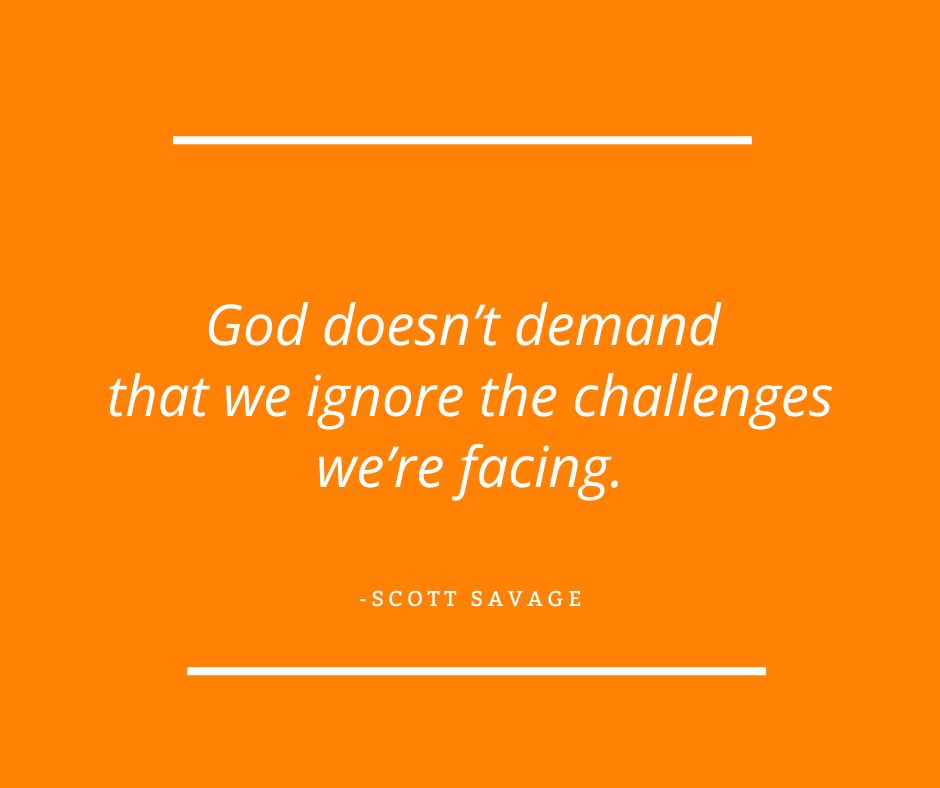Fear or Hope? The Most Important Choice You Make Every Dayنموونە


After issuing the Israelites the 10 Commandments, God told Moses to send one of the best men from each tribe to spy on the Promised Land; with specific questions to answer about the people, the land, and the cities.
Then, Moses told them to be courageous and grab some samples of the land's fruit.
I love Moses's final comment: "Don't get caught, but bring back some goodies to share!"
Why is this historical account significant? Why should you care about the details of the instructions some spies received?
When God calls us to have courageous hope in the middle of difficult circumstances, He doesn't demand that we ignore the challenges. He wants us to see them and account for them.
The Hebrews left Egypt after 400 years of slavery, heading toward a place they had only dreamed about. For hundreds of years, the people heard about God's promises to Abraham, Isaac, and Jacob to bring them into this land. They were living on that promise, and it's as if God said, "Now, I no longer want you to live on a promise. Go see it for yourself. Study it, explore it, learn all about it."
When I said yesterday that I wanted you to learn how to have hope and courage in the middle of your crisis, you may have thought I was out of my mind. "This guy on the Bible app has no idea what he's talking about. If he knew what I was dealing with, he would know that hope is ludicrous and courage is impossible in the face of these challenges."
The people in Numbers 13 may have thought the same thing. What God does by sending them out to spy on the land is shift their perspective from a telescope to a magnifying glass. It's as if He says, "Don't trust the view from far away that somebody told you about. Go see it and study it yourself, the good and the bad, the opportunities and the challenges."
Is it time for you to go on your fact-finding mission? It may be time for you to study your enemy or your obstacles. God might be leading you to know in detail what you're up against and what this crisis will require of you. God might also want to show you how He's been preparing and equipping you for these adversities. He might even want you to sample some of the fruit you will enjoy when this crisis is complete.
Or do you need to do the opposite? Have you gotten so focused and fixated on all of the little details of every problem you're facing that you've lost sight of the big picture? When I get overwhelmed and go into crisis mode, I often get tunnel vision and become blind to all the ways God provides for me, works around me, and even protects me. Until I step back and see a bigger picture, I don't see things as clearly as I thought.
Do you need to grab a magnifying glass and focus on the little things? Or do you need to step back and take a panoramic view so you can see the big picture?
I will share a robust list with you the following day of the plan. If hope has felt impossible or illogical, the next reading may be the most important thing you read in this whole plan.
کتێبی پیرۆز
دەربارەی ئەم پلانە

Are you in the middle of a crisis? Overwhelmed by impossible odds or a challenge that feels like more than you can handle? You're not the first person to feel that way. In Numbers 13-14, a section of the Bible we often avoid, the people of Israel made a choice that changed their future. Their story can teach us a life-changing lesson.
More









